Joseph Banks KCB (1743-1820), naturalist, grew up on his father's Lincolnshire estate, Revesby, but his lifelong interest in botany developed at Eton and Oxford. At the age of twenty-five, he suggested to the council of the Royal Society that they recommend him for inclusion on the voyage of the Endeavour. With Daniel Solander, he collected hundreds of specimens of plants and animals of the South Seas, of which many are depicted in the volumes which have come to be known as Banks' Florilegium. One of the great stars of eighteenth century London, Banks was President of the Royal Society for more than forty years, from 1778 to 1820. His association with Australia far outlasted the voyage with Cook: it was he who recommended it as a site for a penal settlement; he was a patron of Matthew Flinders and others; and his keen interest in Australian natural history was sustained through correspondence with all the early governors of New South Wales. At one point, Carl Linnaeus suggested that the continent be named Banksia. From 1788 to about 1810, though Banks held no official post, his role as de facto head of Australian affairs was widely acknowledged. During this period, he was deeply involved in schemes to drain the fens around Revesby, his family seat in Lincolnshire, through a system of canals. As the fens dried up, great stretches of pasture became available and Boston sheep fair became a major venture. Banks thus became keenly interested in sheep, particularly merinos (the volume The sheep and wool correspondence of Joseph Banks runs to nearly 700 pages) and he was designated Groom of His Majesty's Spanish Flock. He was involved with the first public sale of the breed on 15 August 1804, at which John Macarthur made significant purchases for his property at Camden, New South Wales.
Collection: National Portrait Gallery
Purchased 2018



On one level The Companion talks about the most famous and frontline Australians, but on another it tells us about ourselves.
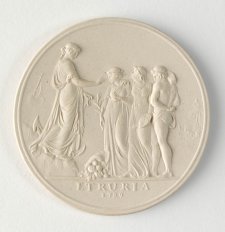
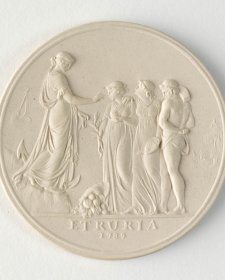
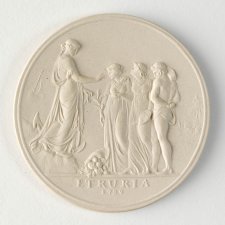
1 January 2015
In recent years I have become fascinated by the so-called Sydney Cove Medallion (1789), a work of art that bridges the 10,000-mile gap between the newly established penal settlement at Port Jackson and the beating heart of Enlightenment England.
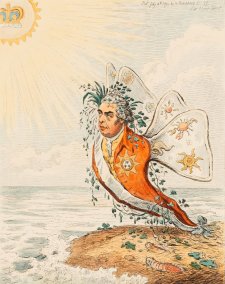
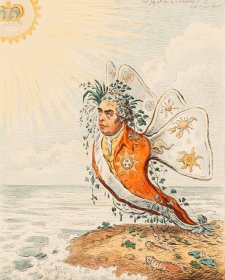
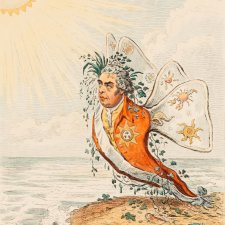
1 September 2014
The caricaturist and engraver James Gillray's biting satires about Sir Joseph Banks.